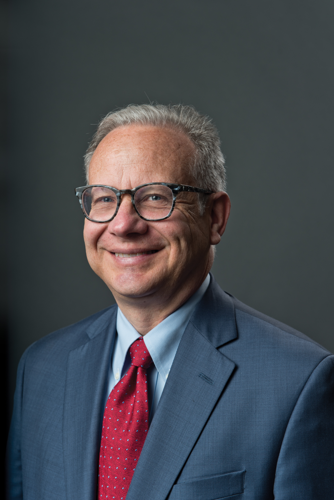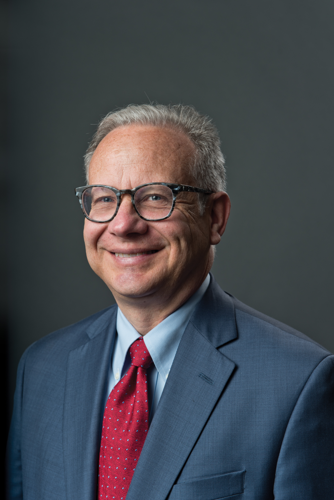
David Briley
For 11 weeks, David Briley walked a tightrope he never asked to walk.
Briley was thrust into the role of interim mayor after Megan Barry resigned, and his recent days have been dominated by three things: a less-than-rosy budget, a countywide transit referendum he was expected to carry, and a race to keep the job he inherited.
The budget battle proved to be bruising. During his State of Metro address on May 4, he delivered the news that the city was short on revenue, even in these boom times, largely as a result of a property tax adjustment that never came after last year’s property reappraisals. When Metro employees were told they wouldn’t be getting raises next year, it was Briley who had to face the heat, and to his credit, he did.
If dealing with the city’s finances was tough, leading a transit campaign proved even tougher. The nearly $9 billion plan had been the centerpiece of Barry’s tenure, a signature piece of city statecraft that would play out over the next 50 years, or if you believe the critics, saddle Nashville with debt for decades to come. Barry had been expected to pull it across the finish line, but Briley saw the coming defeat and quietly shifted his focus to other issues.
And then there was the free-for-all that became the mayoral special election. Opportunists like Erica Gilmore and Harold Love Jr. hopped into the race, hoping to be the anti-Barry and score a surprise spot in a runoff against Briley. Jeff obafemi carr turned his months of advocacy against the transit plan into a mayoral bid. Right-wingers Ralph Bristol and Carol Swain attempted to turn their critique of Nashville as a city in crisis into a longshot chance to lead it.
Briley was left with an odd dynamic. The favorite against any candidate head to head, he could either beat all comers and claim a mandate for the next 15 months, or slip into a runoff and likely become a lame duck, even if he won.
His own polling showed him winning, but put him barely above the 50 percent mark required to avoid the runoff. In the final month, Briley’s campaign knocked on 30,000 doors and blitzed the airwaves with a soft-spoken message of unity, neighborhoods and fixing Nashville’s problems. The $850,000 he raised dwarfed the numbers of any other candidate.
The only real challenger proved to be Swain, a retired Vanderbilt professor and pundit backed by conservative car baron Lee Beaman. She hoped to ride a wave as an anti-tax, anti-corruption outsider, tapping into the same ethos that Trump accessed in his 2016 campaign for the White House.
Swain was largely able to avoid having to answer for years of ultra-conservative columns in various publications, including The Tennessean. In a 13-candidate field, it was never to any candidate’s advantage to attack her for the homophobic and Islamophobic comments she has made. The dynamic mirrored the one that let our current president slip through a crowded Republican field and grab the nomination.
But that populist push, bolstered by Beaman robocalls and Brentwood money, had its limits. In the end, Swain could muster only 23 percent of the vote. As a crowd studded with many of Nashville’s power players packed into the back room of Cabana in Hillsboro Village on election night, chants of “BRI-LEY! BRI-LEY! BRI-LEY!” rose as former Nashville Mayor Bill Purcell introduced the victor.
“Well hello, y’all,” Briley said, standing on a podium to thank the assembled mass after capturing 54 percent of the vote. Even in victory, he was soft-spoken and acknowledged his disappointment about the budget. He emphasized schools, neighborhoods and quality-of-life issues that he wants to address “as long as the people let me stay, and I know now it will be at least through next August.”
The newly elected mayor touched on the frayed nerves that divisive, back-to-back elections in the span of a month have created in Nashville.
“We need to talk to each other a little bit more,” he said, urging the city’s residents to listen to people they don’t necessarily agree with.
But make no mistake: This was a big victory. Briley won every council district, even the ones in the well-heeled Belle Meade and Green Hills neighborhoods replete with Swain signs. Gilmore, Love and carr could barely muster 15 percent combined, and even if you added Swain and Bristol’s votes together, the conservatives fell short of the 34 percent Trump garnered in Davidson County in 2016.
Winning without a runoff is the show of political strength Briley needed to escape Barry’s orbit. It didn’t just endear him to the city’s political brokers, who will be glad they don’t have to dip into their checkbooks for an expensive encore — an outright victory lets Briley shape a mayoral staff hired mostly by his predecessor.
“The vote gives me some latitude to make some changes I need to make,” Briley told the Scene on election night. One of those changes is almost sure to be parting ways with Rich Riebeling, Barry’s chief operating officer who was also Karl Dean’s finance director. Riebeling has been a public and private target for the city’s budget mess, and the cost of holding onto him might be a small war with the Metro Council, which will already be roiled as several of its members — among them, possibly, Jeremy Elrod, Bob Mendes, Freddie O’Connell and Sheri Weiner — will likely look to succeed Briley as vice mayor in an August election.
But for now, Interim Mayor Briley has become Mayor Briley. Beverly Briley’s grandson is just David, a mayor and a political force in his own right. And the only tightropes he walks from here will be his own.






